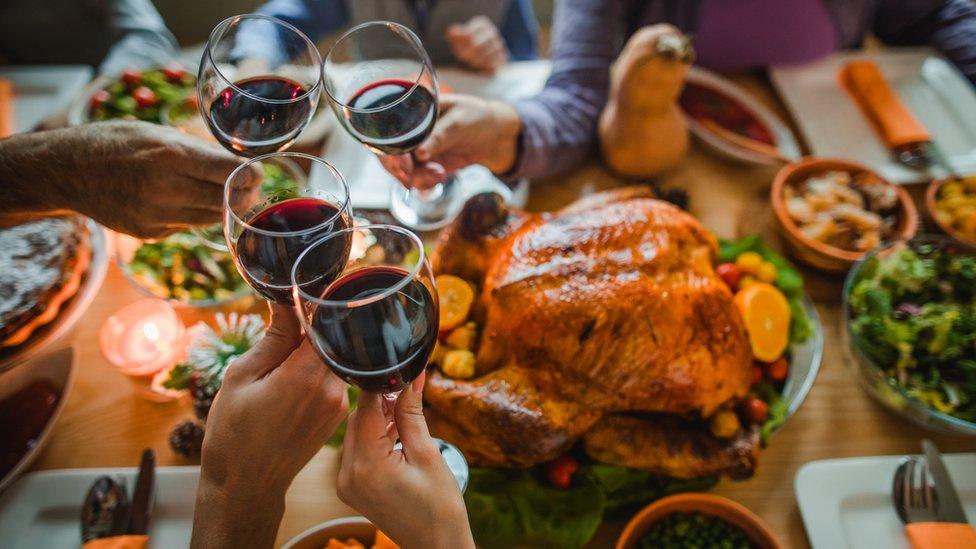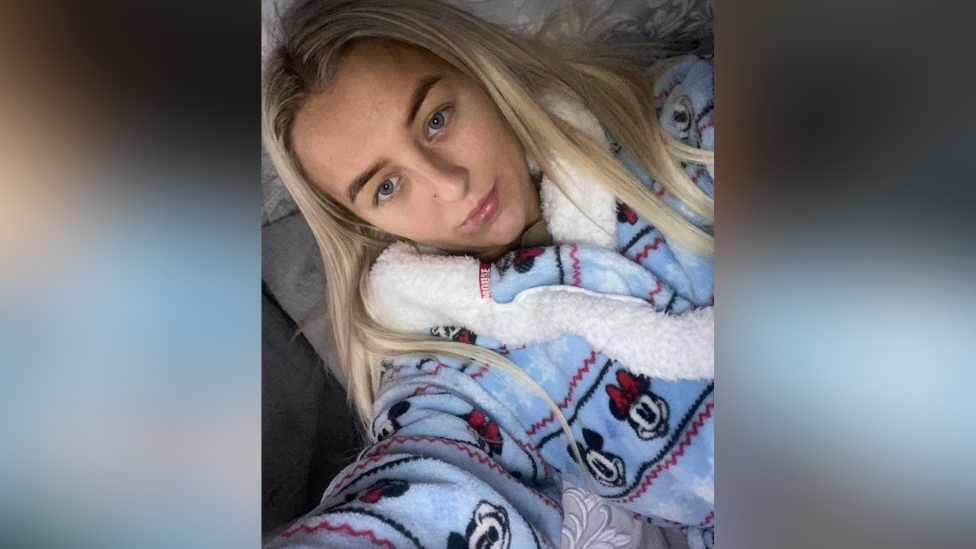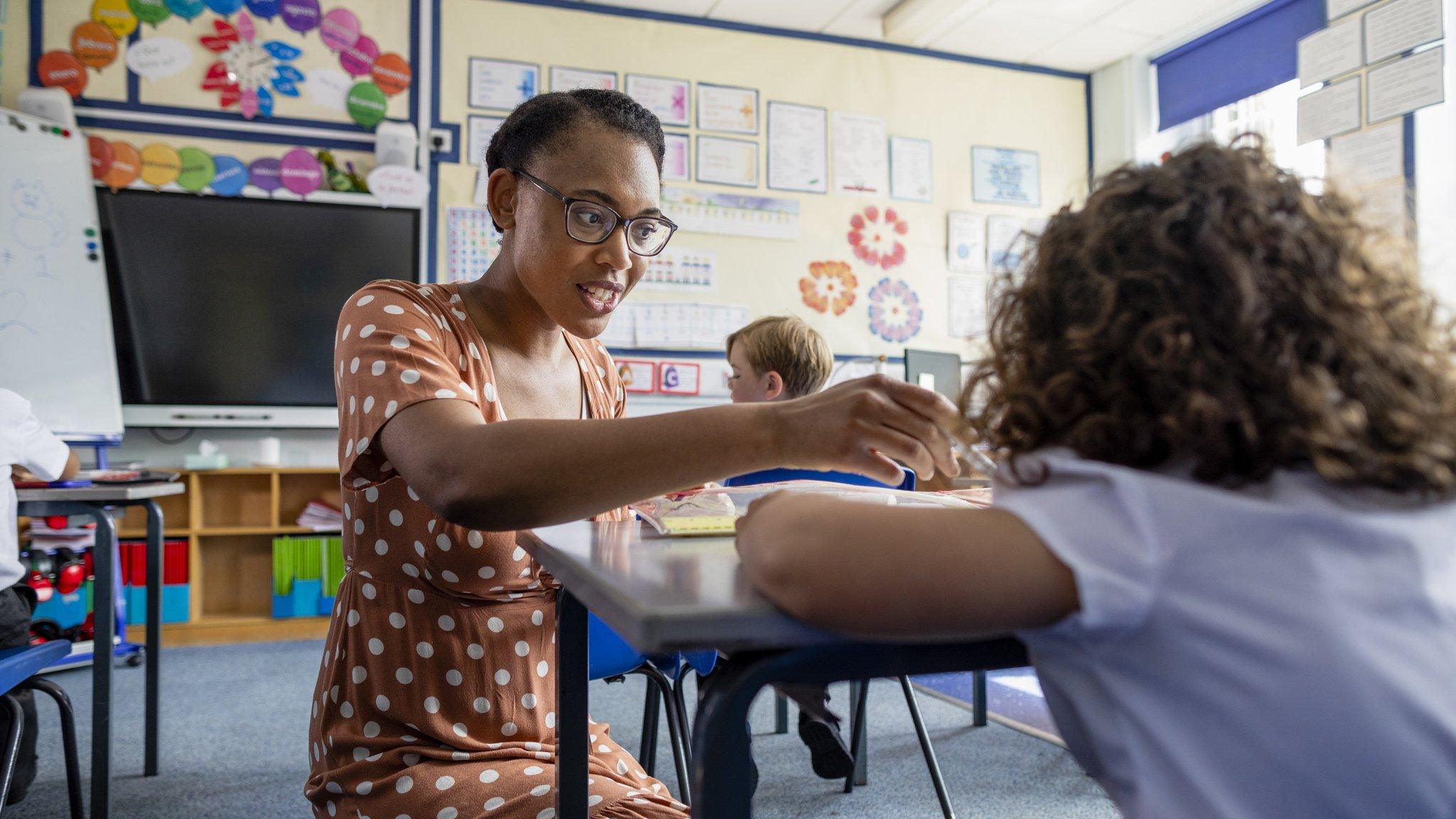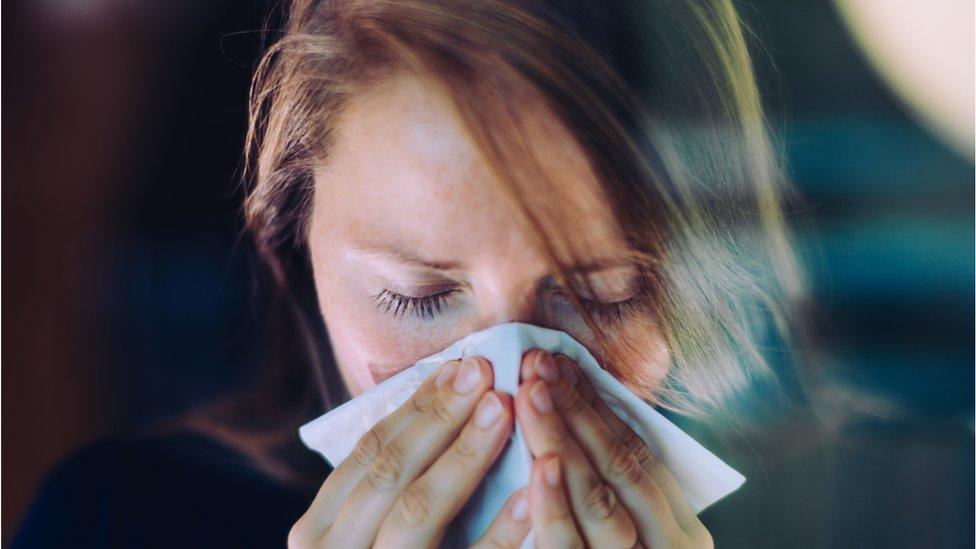Flu and Covid: People told to avoid mixing at Christmas if unwell
- Published

Restrictions over the festive season in the last two years led to Christmas Day plans being scuppered for many
People have been urged to avoid mixing with vulnerable relatives if they feel unwell this Christmas.
The UK Health Security Agency (UKHSA) warned flu and Covid hospital admission rates were continuing to rise.
Health officials also encouraged everyone eligible for the vaccines to have them as soon as possible.
The warning comes as people across the UK prepare for the most open festive period since the start of coronavirus pandemic restrictions.
Parts of the UK were forced into lockdown over the Christmas period in 2020, and a wave of Covid infections meant hundreds of thousands of people were forced to isolate on Christmas Day in 2021.
All remaining Covid restrictions, including the legal requirement to self-isolate at home with symptoms, were removed earlier this year.
However, health officials have said those with signs of respiratory illness should avoid mixing during the festive season, particularly with vulnerable people.
"Both Covid-19 and flu can cause severe illness or even death for those most vulnerable in our communities, and so it is also important to avoid contact with other people if you are unwell in order to stop infections spread over the Christmas and new year period," Dr Mary Ramsay, UKHSA's director of public health programmes said.
Shauna Liptrot, a nurse from Wigan, has cancelled her plans to visit family over Christmas after coming down with flu symptoms earlier this week.
"I was supposed to be visiting quite a lot of family members over Christmas - I'm going to be staying at home in bed now," she told the BBC.
"I don't want to pass it on to my vulnerable family members and I don't feel up to it.
"I also have tonsillitis and I'm on two lots of antibiotics, so Christmas is definitely cancelled in my house because I cant drink any alcohol while I'm on antibiotics."

Shauna Liptrot has cancelled her plans
Overall hospital admission rates for Covid hit 9.56 per 100,000 for the week beginning 12 December, up from 6.61 per 100,000 the week before.
Hospital admissions for Covid are highest in the south west of England with a rate of 15.21 per 100,000 people.
Meanwhile both hospital and intensive care admission rates for flu have increased - hitting 42.04 per 100,000 for adults aged 85 and over, up from 25.4 per 100,000 the previous week.
The flu surge has been attributed to the end of restrictions and the recent cold snap which led to more people mixing indoors.
"Covid restrictions kept flu at bay in previous seasons but the ending of these and plunging temperatures in recent weeks has resulted in increased socialising indoors, which is why both viruses are on the rise," a Department of Health spokesperson said.
The government continued to call for people eligible for both the Covid booster and flu vaccines to come forward as soon as possible for their free jabs.
Health Secretary Steve Barclay said: "As we move into the festive holiday, we can all draw on the spirit of Christmas and make sure our vulnerable relatives, friends and neighbours are getting their immunity topped up to prevent them from serious illness.
"I know from when I got the jabs how quick and easy it is, and I want to encourage all eligible people to come forward this Christmas."
Calum Semple, professor for outbreak medicine at the University of Liverpool, said while vaccination was key to preventing flu outbreaks, uptake of the jabs was particularly low in deprived areas.
"My suspicion is we've seen an erosion in the confidence of vaccination, although in many of these areas it was always hard to reach these populations," he told BBC Radio 4's Today Programme.
"It's never good to catch these diseases. It's not a weakness of the immune system [but] simply the fact that you haven't been exposed to flu for two years," he added.

Do you have flu or Covid? How will your Christmas be affected? Share your experiences by emailing haveyoursay@bbc.co.uk, external.
Please include a contact number if you are willing to speak to a BBC journalist. You can also get in touch in the following ways:
WhatsApp: +44 7756 165803
Tweet: @BBC_HaveYourSay, external
Please read our terms & conditions and privacy policy
If you are reading this page and can't see the form you will need to visit the mobile version of the BBC website to submit your question or comment or you can email us at HaveYourSay@bbc.co.uk, external. Please include your name, age and location with any submission.
Related topics
- Published22 December 2022

- Published22 December 2022

- Published21 December 2022
